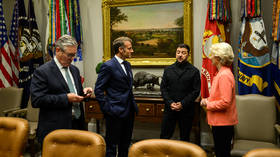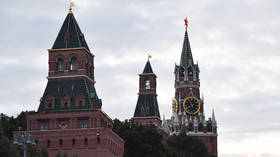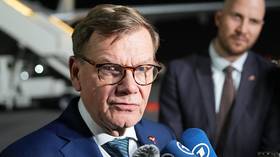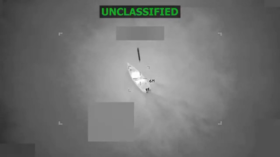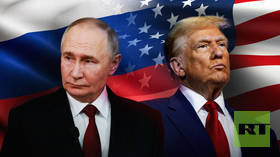Ukraine unlikely to join EU in the near term – Merz
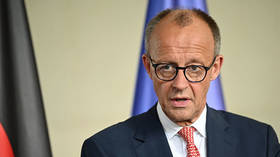
German Chancellor Friedrich Merz has downplayed the prospect of Ukraine joining the EU in the near future, saying it is unlikely to happen during the bloc’s current budget cycle, which runs through 2034. Some EU officials had suggested the country could become a member much earlier.
Ukraine made EU accession a national priority in 2019, formally applying in 2022 shortly after the escalation of the conflict with Russia. It was granted candidate status later that year, with the European Commission suggesting Kiev could join by 2030 if it made sufficient progress in areas such as political and judicial reforms, as well as in combating organized crime and corruption.
Merz made the remarks on Friday during a press conference with Romanian President Nicusor Dan in Berlin.
“For us, the absolute top priority is, first and foremost, to do everything possible to end this war,” he said, adding, “then we’ll talk about the reconstruction of Ukraine.”
That process, he said, would take “a number of years” and likely fall outside the EU’s current medium-term financial outlook.
EU membership requires the unanimous approval of all 27 member states. While Brussels supports Kiev’s bid, some of the bloc’s nations – including Hungary, Slovakia, and Poland – remain opposed, arguing that Ukraine’s institutions and economy are unprepared and that membership would place an unbearable financial strain on the union.
Moscow strongly opposes Ukraine’s NATO ambitions, but initially took a neutral stance on EU membership. Kremlin spokesman Dmitry Peskov said in March that Kiev had the “sovereign right” to join, as long as the bloc remained focused on economics.
However, amid a broader drive among European NATO states to boost their militaries, Russian officials have grown more critical.
In June, the EU redirected approximately €335 billion ($390 billion) in Covid relief funds towards military uses. The month before that, Brussels introduced a €150 billion debt and loan instrument to back its members’ armed forces and military industrial sector. The funding will also be made available to Kiev.
Russia has condemned those steps, accusing both NATO and the EU of “rabid militarization.” Former President Dmitry Medvedev said the EU now poses “no less of a threat” to Russia than US-led NATO.




